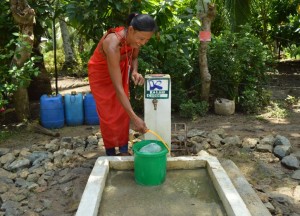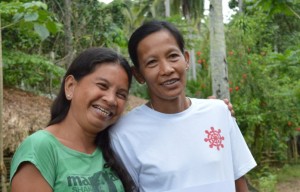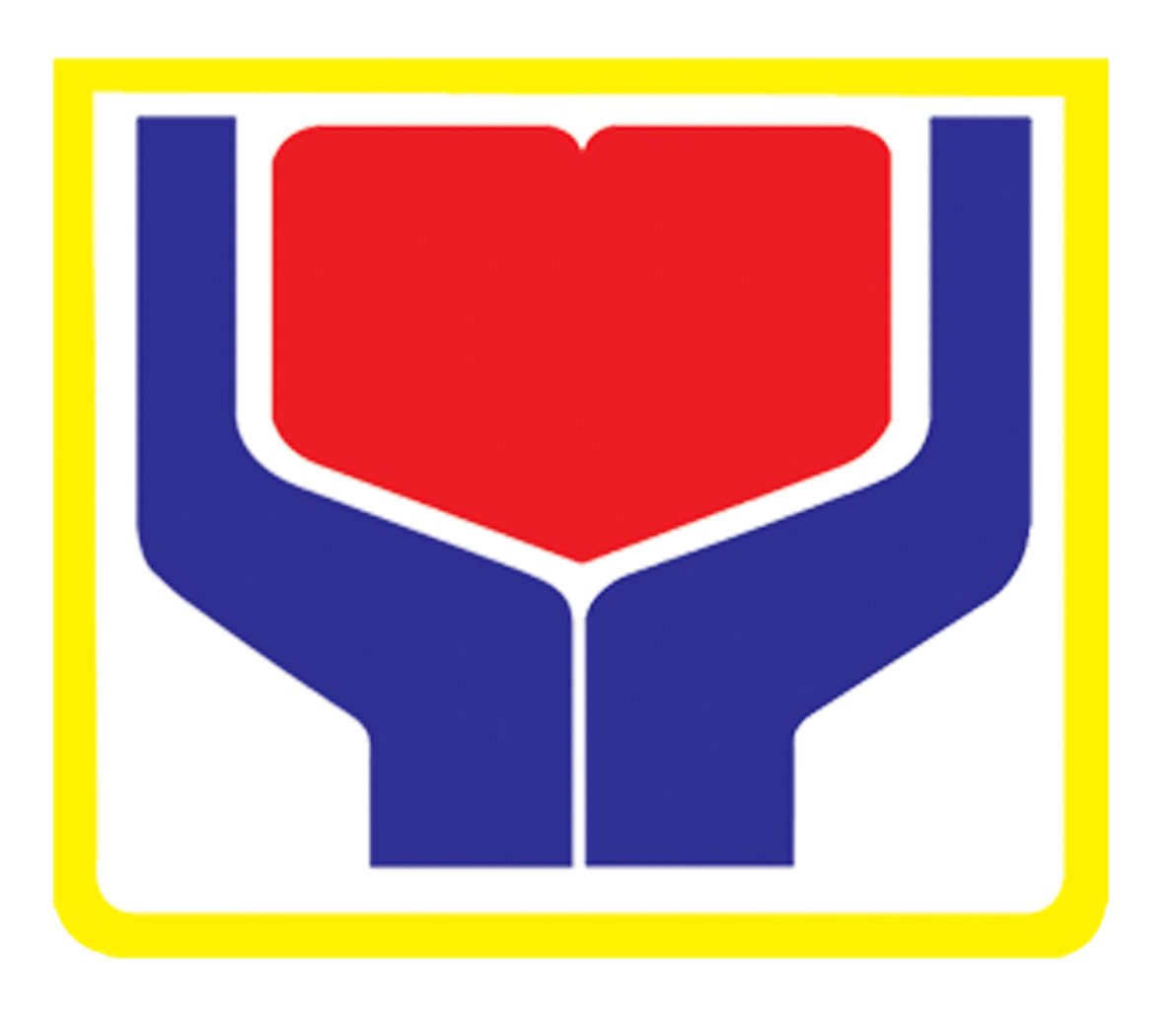
Her name is Victoria.
However, the locals know her by a lot of other names—usually references to her physical appearance.
“Nung bata pa ko, tinatawag ako ng mga kaklase ko na bagnot (a name call meaning dark and filthy). Sinasabayan pa nila ng pangungutya sa pananamit ko dahil gawa lang daw sa katsa,” shared Victoria Rejano-Organo, 49, an Aeta from Brgy. Del Rosario in Buenavista, Quezon Province.
The Aetas are indigenous peoples (IP) living in the mountainous areas of Luzon. In Buenavista town, there are 126 IP households where half of them reside in Brgy. Del Rosario.
As a minority group in the village, the Aetas are often teased.
According to Victoria, they feel intimidated by how they are treated and keep themselves distant from other people in their community. She added that this is also one of the reasons most Aetas are not attending school.
But unlike others, Victoria had a strong will to study. She made sure to finish elementary.
“Nagsikap akong makatapos ng elementarya dahil alam kong ito ang susi para maibangon ko ang sarili ko. Gusto kong makilala hindi bilang bagnot pero bilang isang Aeta na nakapag-aral, na alam ang mga karapatan bilang tao at hindi basta-bastang maloloko,” shared Victoria, who is now the tribal chieftain of the Aeta group in the said village.
One community
As the tribal chieftain, Victoria wants the best for her tribe by giving her fellow Aetas with opportunities to improve their living condition. She realized that for this to be achieved, they need to cooperate with local officials and residents to lobby their concerns and needs.
“Ang pag-unlad ng aming tribo ay nakasalalay din sa pag-unlad ng buong barangay. Kailangan naming matutong makisalamuha at makiisa sa ibang ka-barangay para maisakatuparan ito,” said Victoria.
Victoria’s will to work with the locals towards their tribe’s development was fulfilled when a community-driven program was introduced to their village in 2013 through the Department of Social Welfare and Development’s Kapit Bisig Laban sa Kahirapan-Comprehensive and Integrated Delivery of Social Services (Kalahi-CIDSS).
Here, she worked with the locals in analyzing the pressing problems of their community and in coming up with possible infrastructure projects that can address these.
Of all that they have discussed, they prioritized implementing a water system sub-project to have a regular potable water supply in the community.
According to Victoria, the Aetas get their main water supply for drinking and general use from the river, which gets muddy every time it rains.
The locals experience the same, too. Sanilyn Balonso, one of the locals, shared that several children suffer from diarrhea because of this.
“Marami na ang namatay dahil sa diarrhea. Kaya naman ginusto namin na magkaroon ng malinis na patubig para masiguro ang kaligtasan at kalusugan ng mga tao dito,” shared Sanilyn, 46.
The community of Del Rosario was granted with PhP700,000 to implement the sub-project. Residents were organized as community volunteers and were trained on proposal development, construction estimates, and community finance and procurement.

Sanilyn became the head of the community volunteers while Victoria took the lead in persuading her fellow Aetas to help with the project for additional workforce.
At first, Victoria admitted that it was hard to bring the Aetas closer to the locals. But she kept convincing them that their participation will be of great help for the whole community.
“Sinasabi ko sa kanila na tulungan nila akong ipakita na kaming mga Aeta ay hindi dapat minamaliit dahil may magagawa din kami sa komunidad. Ako ang nangunguna sa pagtatrabaho para sila’y sumunod,” said Victoria.
During the construction, the Aetas worked for free as their form of in-kind counterpart for the project. This was greatly appreciated by the locals, especially Sanilyn.
“Napadali ang trabaho dahil sa tulong ng mga IPs namin. Lubos ang pasasalamat namin sa kanila,” said Sanilyn.
Now, the residents of Brgy. Del Rosario enjoys a regular potable water supply. Their water system includes a water reservoir, distribution lines and 11 tap stands installed in the different parts of the barangay.
The community volunteers also formed the Del Rosario Water System Association (DELROWASA) to manage the operations and maintenance of the water system. Caretakers are assigned to each tap stand who oversee the water distribution and collect maintenance fee worth PhP50 per month. Meanwhile, the Aetas are in charge with the cleaning of the main reservoir since it is located near their area.
“Napakaganda ng proyekto dahil lahat ay nakinabang at nagtulungan maging ang mga IPs. Nagkaisa ang mamamayan,” Sanilyn said with a smile.
Continuous development
Now that the Aetas are exposed to community works and development, Victoria believes that for them to be continuously empowered, they should be given access to basic education.
According to Victoria, most of the Aetas are insecure because they do not know how to read and write. Thus, she lobbied this concern to their local government and was able to bring the Alternative Learning System (ALS) schooling in their community, which will start this June 2016.
Further, the Aetas have proposed a tribal hall sub-project in 2015 and they were provided a Kalahi-CIDSS grant worth PhP697,272. At least 30 Aetas are now managing the implementation of the sub-project, which will serve as their classroom for the ALS schooling.
More than 60 IP households are expected to benefit from this sub-project
Filled with pride and joy, Victoria is thankful for all the opportunities.
“Unti-unti, kinakaya na naming lumaban sa mga hamon ng buhay. Kahit kami’y mga IP, may kakayahan din kaming umunlad,” Victoria proudly said.
In the end, Victoria did not let those name calls and criticisms define her. Once called as “bagnot,” Victoria has now built a reputation as an Aeta tribal chieftain who steered change in their community.#
